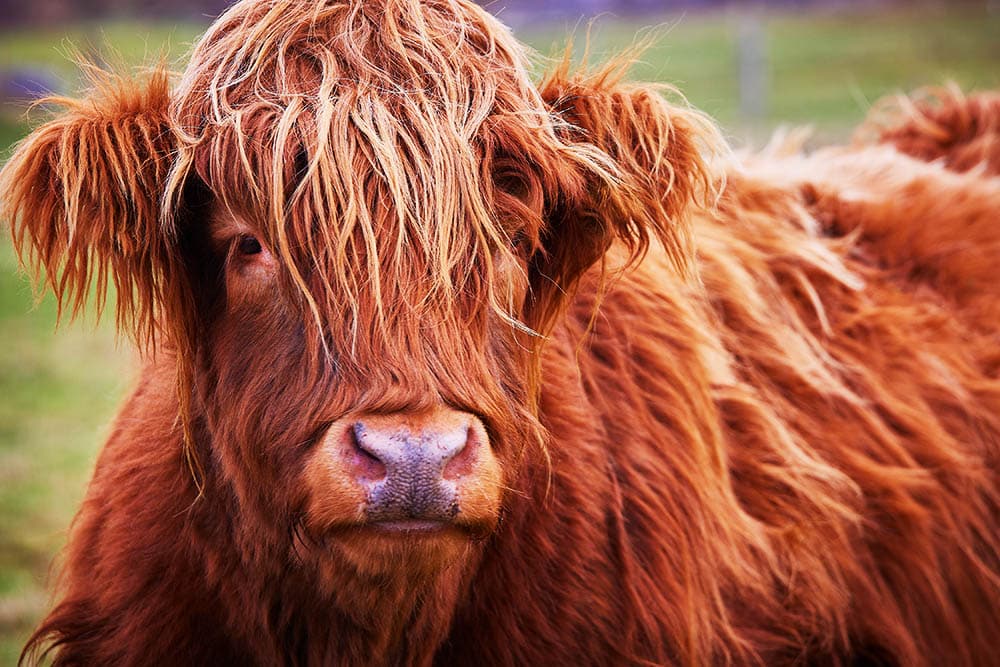The Rise of Organic Livestock Farming
In recent years, there has been a growing trend towards organic livestock farming. People are becoming more conscious of the impact that their food has on the environment and are looking for ways to reduce their carbon footprint. Organic livestock farming is one such way. It offers a more sustainable future for agriculture, reduces the use of harmful pesticides and antibiotics, and provides healthier options for consumers. In this article, we will explore the benefits of organic livestock farming and why it is the sustainable future of agriculture.
What is Organic Livestock Farming?
Organic livestock farming is a method of raising animals that focuses on their health and well-being while also minimizing the impact on the environment. The animals are raised in a natural environment that is free of pesticides, herbicides, and other harmful chemicals. The focus is on producing high-quality meat, milk, and other animal products that are free of chemicals and other harmful additives. Organic livestock farmers use natural methods to enhance the health and productivity of their animals.
Benefits of Organic Livestock Farming
There are several benefits to organic livestock farming. These include:
1. Reduced Environmental Impact
Organic livestock farming reduces the impact on the environment by minimizing the use of harmful chemicals and other pollutants. Organic farmers rely on natural methods of pest control, such as introducing predatory insects, that do not negatively impact the environment. Additionally, organic livestock farmers use sustainable practices that help to preserve the land and protect the surrounding ecosystem.
2. Healthier Animals
Organic livestock farmers focus on the health and well-being of their animals. They provide a natural, stress-free environment that allows animals to thrive. Organic farmers use natural remedies to treat illnesses and infections, reducing the need for antibiotics and other chemical treatments. The result is healthier animals that produce high-quality meat, milk, and other products.
3. Healthier Products
Organic livestock products are healthier for consumers. Since organic farmers do not use chemicals or other harmful additives in their products, they offer a healthier alternative to conventionally-raised meats and dairy products. Organic meat and dairy products are free of antibiotics, hormones, and other additives that can be harmful to human health.
Why Organic Livestock Farming is the Sustainable Future of Agriculture
There are several reasons why organic livestock farming is the sustainable future of agriculture. These include:
1. Reduced Carbon Footprint
Organic livestock farming reduces the carbon footprint of agriculture. Since organic farmers do not rely on chemical fertilizers and other harmful inputs, they are able to reduce the amount of carbon emitted by conventional agriculture. Additionally, organic farmers use sustainable practices that help to sequester carbon in the soil, reducing greenhouse gas emissions.
2. Soil Health
Organic livestock farming improves soil health. Organic farmers use natural methods to enhance soil fertility, such as composting, cover cropping, and crop rotation. These practices help to build healthy, nutrient-rich soil that is essential for sustainable agriculture.
3. Biodiversity
Organic livestock farming promotes biodiversity. Since organic farmers do not rely on chemical inputs, they are able to create a more diverse ecosystem. This encourages the growth of beneficial insects and other organisms that help to maintain a healthy balance in the environment.
4. Economic Benefits
Organic livestock farming provides economic benefits to farmers and rural communities. Since organic products are in high demand, farmers can command a premium price for their products. Additionally, organic farming provides opportunities for small-scale farmers to diversify their income and build a more sustainable future for their families and communities.
How to Support Organic Livestock Farming
If you are interested in supporting organic livestock farming, there are several ways that you can do so. You can:
1. Buy Organic Products
One of the easiest ways to support organic livestock farming is to buy organic products. Look for the USDA Organic label on packaged foods or seek out local farmers who sell organic products.
2. Support Local Farmers
Supporting local farmers who practice organic livestock farming is a great way to support sustainable agriculture. Local farmers are more likely to use sustainable practices that protect the environment and promote healthier products.
3. Educate Others
Educating others about the benefits of organic livestock farming is another way to support sustainable agriculture. Share your knowledge with others and encourage them to support local farmers who practice organic farming.
Conclusion
Organic livestock farming is the sustainable future of agriculture. It offers several benefits, including reduced environmental impact, healthier animals and products, and economic benefits for farmers and rural communities. By supporting organic livestock farming through buying organic products and supporting local farmers, we can all play a role in building a more sustainable future for agriculture.
- Empowering the Next Generation: Why Environmental Education for Children is Crucial for a Sustainable Future - 28 de abril de 2023
- Saving Our Planet: Why Every Business Needs an Effective Environmental Policy - 28 de abril de 2023
- Why Organic Livestock Farming is the Sustainable Future of Agriculture - 28 de abril de 2023
